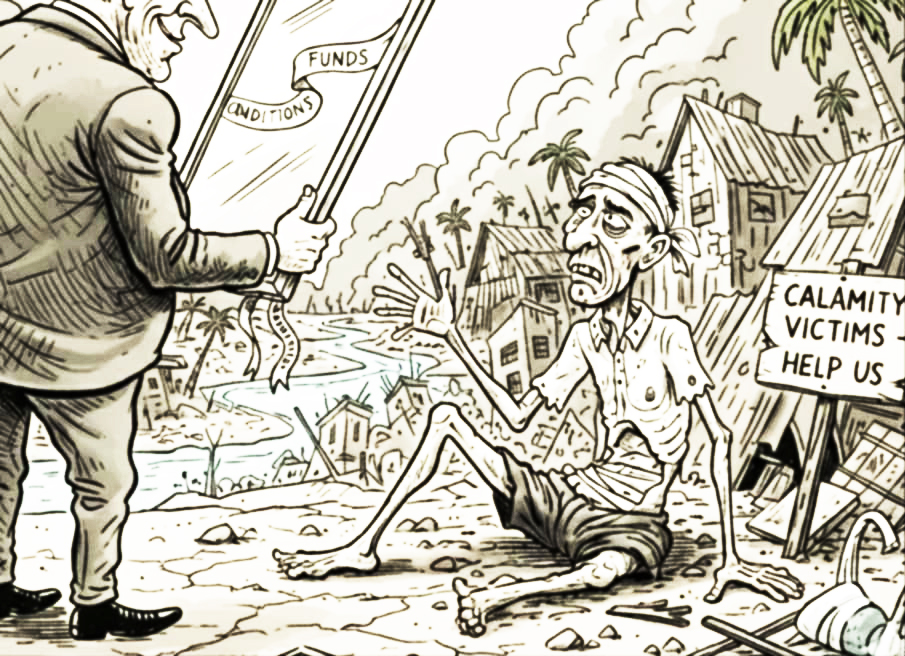It is a sad reality that foreign donations no longer pour into the Philippines as they once did whenever calamities strike. The world has become hesitant, even unwilling, to extend help to a country whose leaders have repeatedly betrayed the generosity of others. Such reluctance is not born out of cruelty but out of disgust and disappointment.
In the past, when typhoons, earthquakes, or volcanic eruptions devastated communities, the world responded with admirable speed and compassion. Cargo planes filled with relief goods arrived within days, foreign governments pledged millions in aid, and charitable institutions collaborated closely with local agencies to bring hope to the afflicted. But those days are gone. The generosity that once came freely has withered, replaced by suspicion that any donation sent to this country will never reach the hands of those who need it most.
The blame for this grim turn lies squarely on the shoulders of corrupt officials and government agencies that treated foreign aid as their own bounty. Time and again, reports have surfaced of relief goods being hoarded, repackaged, resold, or distributed only to political allies. Donated funds have mysteriously vanished, leaving victims with nothing but empty promises and photo opportunities staged for propaganda. Such acts have not only betrayed the Filipino people but have also insulted the goodwill of the international community that once trusted the country’s sincerity.
The foreign donors, once generous and compassionate, have learned their lesson. They no longer wish to see their hard-earned money or carefully gathered goods fall into the hands of thieves masquerading as public servants. Instead of providing hope, their donations have been twisted into instruments of greed and corruption. This collective realization has made the global community more cautious, directing its charity elsewhere—toward nations where integrity still governs humanitarian aid and where compassion is not used as a means to enrich the powerful.
If the country hopes to regain the world’s trust, transparency and accountability must become non-negotiable. Relief operations should be handled by independent, credible institutions—not by politicians seeking to exploit tragedy. Every peso donated, every sack of rice sent, every medicine distributed must be appropriately documented and reported. Only then can the Philippines once again be seen as worthy of the world’s compassion, not as a pit where kindness disappears, but as a nation capable of gratitude, honesty, and reform.




